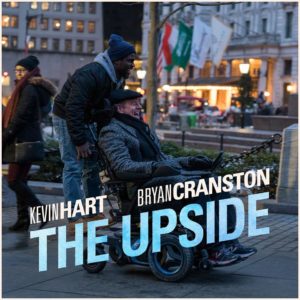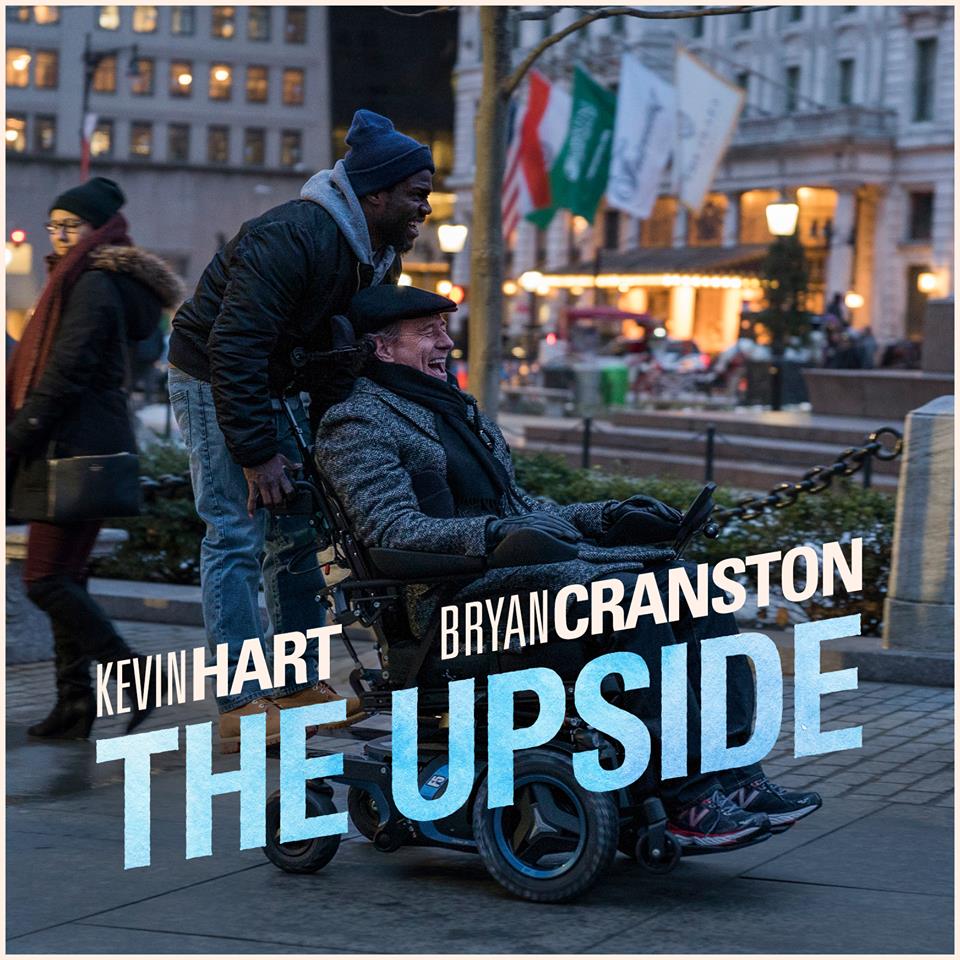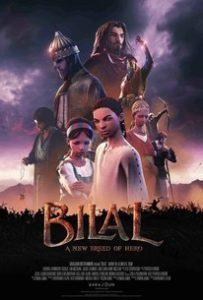The Upside
Posted on January 10, 2019 at 5:49 pm
B-| Lowest Recommended Age: | High School |
| MPAA Rating: | Rated PG-13 for suggestive content and drug use |
| Profanity: | Some strong and crude language |
| Alcohol/ Drugs: | Marijuana, some alcohol |
| Violence/ Scariness: | Severe medical issues, some peril, reference to serious accident |
| Diversity Issues: | A theme of the movie |
| Date Released to Theaters: | January 11, 2019 |
| Date Released to DVD: | May 20, 2019 |

Del did not want the job. He did not even know what job he was applying for. But his parole officer warned him that he would have to go back to prison if he could not show that he had been turned down by three potential employers. So, he takes the elevator to the penthouse thinking he is applying for a custodial position and barged into another candidate’s interview because he just wants to be turned down and get out of there and pick up his son from school. Instead, he ends up getting hired. Philip (Cranston) likes Del because he is so inappropriate. While the other applicants for the position spoke in low, soothing, deferential tones, Del was at home with saying whatever he was thinking.
Being at home with whatever the job required was another thing, however. Del is fine with lifting Philip into the chair and driving him around in his fancy cars. He is more than fine with his room in the penthouse, though the shower is very complicated and probably bigger than his prison cell. He is fine with Philip’s DNR orders. He is not fine with some of the more intimate aspects of the job.
It is about 15 minutes too long, and very much a studio product, burnished and focus-grouped. Philip teaches Del to appreciate opera and Del teaches Philip to appreciate Aretha Franklin. They each push the other out of their comfort zones. Del forces Philip to call his “epistolary” friend, a woman he has been corresponding with through old-school letters. Philip makes it possible for Del to resolve some of the issues of his past, including beginning to develop a relationship with his estranged son.
The three performers bring a lot of luster to a formulaic screenplay (opera/Aretha, TWO scenes high on weed, a breaking-everything-will-be-cathartic moment), especially Cranston, who brings warmth and depth to a character who is extremely patient and understanding (until he isn’t). Kidman is marvelous as Philip’s quiet and very proper executive assistant. And Hart has his best moments when he is slightly toned down, unsure, and disheveled from his usual high-energy, peppery persona, making us look forward to seeing him explore a wider variety of roles, maybe even something dramatic. If he listens to the advice Del gets from Philip, maybe that will happen.
Parents should know that this film features some strong and crude language, sexual references and graphic sexual humor and a mild situation, drug use and drug humor, and a severe medical condition.
Family discussion: What need can you find a way to fill? Who can you encourage? Why did Philip like Del?
If you like this, try: the original French version, “The Intouchables” and “Me Without You”









